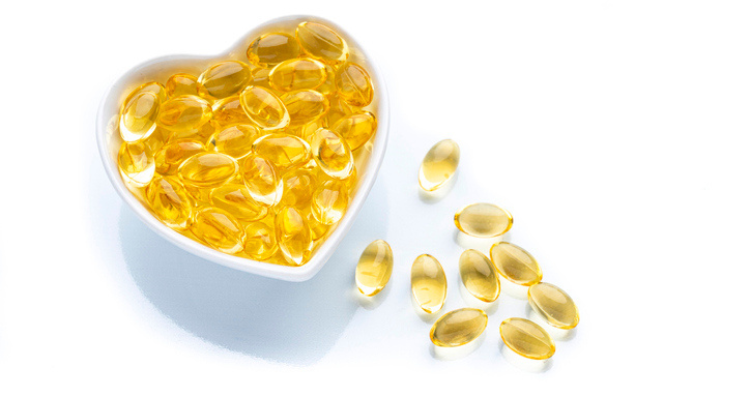.jpg?width=750&name=fish-on-the-counter-at-the-store-frozen-fish-on-the-counter-at-the-supermarket_t20_nRYGe4%20(1).jpg)
Are you considering adding an Omega-3 to your daily supplement regimen? Fish oil and krill oil are both sources of the essential fatty acids DHA and EPA, but there are a few subtle differences between the two oils. The big difference between fish and krill oil is the type of fish each one comes from. Most fish oils are extracted from anchovies and sardines, whereas krill oil is derived from krill, a type of shellfish. If you are allergic to shellfish or trying to keep Kosher, krill oil may be out of the running; otherwise, it helps to consider the pros and cons of each type of oil, since they are similar sources of fatty acids. In this post, you’ll find some useful factors to consider when weighing out your options.

Omega-3 and Omega-6
Knowing which essential fatty acids are more important to you depends on what you are looking for in terms of support. If you are interested in supporting cardiovascular health, joint comfort, skin health, and neurological and immune system function, an Omega 3 supplement might be a good choice for you.*
As for the Omegas in fish and krill oil, studies have shown that the Omega-3 in krill oil are linked to certain antioxidants, which is important to many consumers.* Another factor to consider is what type of Omega fatty acid you want. In addition to Omega-3, krill oil also contains Omega-6 if you are looking for a supplement with both.
Joint Support*
In addition to getting in your daily Omega-3 and Omega-6, krill oil provides joint support and helps support pre-menstrual comfort.* It has been shown to support those with normal symptoms associated with PMS, such as cramps, water retention, and low mood states.*
What About the Taste?
Another factor many people forget to consider is the taste. If you have ever taken any type of fish oil on a regular basis, you may have noticed a “fishy” aftertaste. Some reports show that the antioxidants in krill oil also stabilize the fat to keep it from getting a fishy taste.* You can also get flavored fish oil, or try taking it with food if the taste bothers you.
Overall, choosing which type of fish oil to take is an individual decision. There’s no universal answer to which type of supplement is right for you. Be sure to discuss the additions to your supplemental diet with your doctor before taking anything.

Have you tried fish oil or krill oil? Find us on Facebook and tell us about your experience with essential fatty acids.
*These statements have not been evaluated by the Food and Drug Administration. This product is not intended to diagnose, treat, cure, or prevent any disease.







.jpg?width=750&name=fish-on-the-counter-at-the-store-frozen-fish-on-the-counter-at-the-supermarket_t20_nRYGe4%20(1).jpg)



.jpg)






